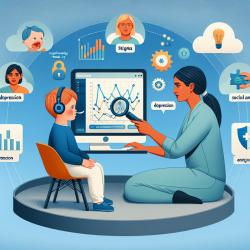Introduction
The landscape of research is evolving, and with it, the role of health sciences librarians (HSLs) in promoting open science (OS) is becoming increasingly significant. The recent scoping review titled "Health sciences librarians' engagement in open science: a scoping review" provides a comprehensive analysis of how HSLs are contributing to this global movement. This blog post will explore how practitioners can leverage the findings from this review to enhance their skills and improve outcomes in their professional environments.
Understanding Open Science
Open Science is a movement aimed at making research more transparent, accessible, and reproducible. It encompasses various practices, including open access, open data, open education, and citizen science. The scoping review highlights that HSLs play a pivotal role in advancing OS by supporting researchers through library services, strategic planning, and community engagement.
Key Findings from the Review
The review analyzed 54 studies and identified several themes related to HSLs' involvement in OS:
- Open Access: HSLs are actively promoting open access by developing institutional repositories and managing digital archives.
- Open Data: Librarians provide support for data sharing and management, offering training sessions on data literacy and FAIR principles.
- Open Education: HSLs facilitate the use of open educational resources, enhancing the learning experience for students and faculty.
- Citizen Science: Libraries engage communities by organizing events and providing resources to support citizen science initiatives.
Implementing Open Science in Practice
Practitioners can enhance their skills by adopting the following strategies based on the review's findings:
- Engage with Open Access: Collaborate with librarians to ensure your research is accessible to a broader audience. Utilize institutional repositories to increase the visibility of your work.
- Embrace Open Data: Attend workshops and training sessions on data management. Implement FAIR principles in your research to enhance data sharing and reuse.
- Utilize Open Educational Resources: Incorporate open educational resources into your teaching and training programs to enrich the learning experience.
- Participate in Citizen Science: Engage with community members and involve them in research projects to foster a collaborative research environment.
Encouraging Further Research
While the review highlights the significant contributions of HSLs to OS, it also identifies areas for further research. Practitioners are encouraged to explore the following topics:
- Social Justice and Equity: Investigate how OS can advance equity and social justice in research.
- Impact Assessment: Conduct studies to evaluate the impact of OS services on research outcomes and institutional goals.
- Global Perspectives: Explore OS practices in underrepresented regions to gain a comprehensive understanding of its global impact.
Conclusion
Health sciences librarians are at the forefront of the open science movement, providing invaluable support to researchers and practitioners. By implementing the strategies outlined in the scoping review, practitioners can enhance their skills, contribute to the advancement of open science, and ultimately improve outcomes in their professional environments.
To read the original research paper, please follow this link: Health sciences librarians' engagement in open science: a scoping review.










